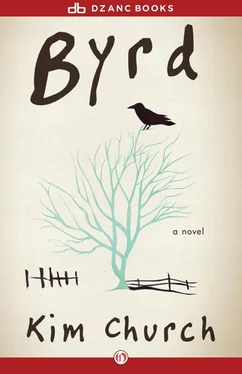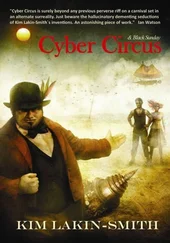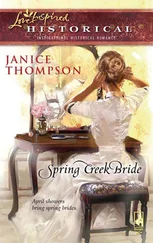“It was a blue jay.”
She lights another cigarette, sighs into the receiver. “I still think about that lot next door. We should have bought it when we had the chance, before the Davenports cut down your woods.”
“Did you know,” Sam says, “that most kids whose parents smoke get asthma sooner or later?”
“That can’t be true. Where did you hear that?”
“Something like sixty-five percent. It was in the book I sent you.”
“Does this book say anything about air purifiers? Because I’ve heard the new one is supposed to take everything out of the air.”
Non — Identifying Information
Dear Byrd ,
My social worker, Janet Worry (not her real name), says I should write you letters. She doesn’t know I’ve been writing you all along .
She says a lot of her mothers (that’s how she talks, “my mothers”) have trouble getting started. Some copy out favorite poems or song lyrics. Some send greeting cards .
“Greeting cards?” I said .
“It’s a start,” she said .
“What do your mothers write about?” I said .
“Everything,” she said, “anything. Sometimes it’s easiest to start with the facts, details of the child’s birth. Whatever you think your child might like to know. Just be careful to leave out any identifying information.”
On the day you were born, J.D. took me to the hospital and went with me to the maternity floor. The carpet in the elevator smelled like iodine. One stop before ours, an orderly got on pushing a woman on a gurney. The woman’s arms were covered with needle bruises. She had a high, weak voice, and she kept asking the orderly, “Why are you doing this, why are you doing this?”
They took me to a room and put me in a bed and J.D. came in and planted himself in the recliner and turned on the TV, some show about dolphins. I watched him watching. I watched the dolphins in his glasses. The room smelled like him. I felt safe. Then a nurse came in all crisp and efficient and said to him, “Are you the father?”
“The driver,” he said .
“Maybe you’d like to wait in the waiting room .”
J.D. stood up. He looked like Paul Bunyan. He came and stood over my bed and laid his hand on the top of my head like he had something to tell me. “Let me know how the show comes out,” he said .
He waited fourteen hours before they called him to the nursery. Could you see him there, pressing his big face to the glass? He said he knew without asking which one was you. He said you looked like me, sort of, and sort of like the man on the dolphin channel .
Three days later he took me home. He had a present waiting for me, a grab-box from his latest estate sale. Grab-boxes are how the sale companies clear out a person’s small, junky items that can’t be sold by themselves. Twenty-five, fifty cents, you take your chances. J.D. had gotten me a fifty-cent box. It had a pot of dead chrysanthemums, a glass frog for flower-arranging, a crocheted Kleenex-box cover, three shrimp forks, and a pair of ladies’ worn-out terry cloth slippers still attached by a plastic thread. J.D. shoved his big feet in the slippers and tried inching along in them. “Here she is trying to get to the telephone,” he said. He wanted to make me laugh, and I wanted to. But I could only picture the old woman from the hospital elevator, the one who kept asking , Why are you doing this?
Dear Byrd ,
Dolphins help women have babies, and not just by swimming around on TV screens in hospital rooms .
There’s a man in Russia, a famous midwife who delivers babies underwater, in the Black Sea. He says dolphins are attracted to mothers. It’s like they know. When a woman gives birth, the dolphins gather around her, smiling the way dolphins do, and lift the baby on their long noses and carry it up to the surface where it can breathe .
Dear Byrd ,
When I was growing up there was a strange old man who lived next door to my grandparents. Mr. Junius Beck. When my family went for our Sunday afternoon visits, my brother and I would slip over to Mr. Beck’s. He lived in a small white house with artificial flowers stuck in the ground outside the front door, his plastic garden. He would invite us inside and offer us candy hard as fossils. Then he’d take out his family album, a green notebook worn at the edges, and turn to a picture of his wife and infant daughter, who had died years earlier from a gas leak while he was away from home. He had photographed them at their funeral — in the picture, they were lying together in a coffin in their frilly clothes. “Here’s Annie Mae and the baby in the corpse,” he would say. My brother and I knew better than to laugh at his wrong word. Even as children we knew enough to say, “We’re sorry, we’re so sorry.” The words seemed to work like a drug. Mr. Beck would let out a little sigh, a soft, rumbling sound from deep in his throat. Then he would close the picture album, set it back on the shelf, pass us the candy jar and let us fill our pockets .
We kept up this creepy Sunday ritual for a long time — months — until our parents learned about it and ordered us not to go back .
I didn’t think about Mr. Beck again for years. Not until after you were born .
I was in pain from the surgery. Every part of me felt raw. I had nothing left of you, not even a picture in an album. I had a constant lump in my throat. No one sent get-well cards or brought casseroles because no one knew. I didn’t expect or deserve sympathy .
I didn’t lure unsuspecting children with candy. But I came to understand why Mr. Beck did. How sad and guilty and lost he must have felt. How he must have craved our pure, sweet, unjudging “I’m sorry”s .
Dear Byrd ,
Janet Worry expects me to turn my letters over to her, not keep them in a shoebox on a shelf in my closet. It’s an Easy Spirit box, the one my black suede boots came in .
Janet isn’t old but she always looks tired, like she isn’t quite ready for whatever is happening. On the day you were born, she wore a sleeveless dress to the hospital. I could see powderpuffs of dark hair under her arms. Her dress was wrinkled. The papers she took out of her satchel were wrinkled. She sat on the edge of my bed and petted my arm and said “There, there,” like she understood how I felt. Social workers think they know you. They don’t want you to tell them things. None of the forms Janet gave me to fill out asked why I was giving you up .
She didn’t come to the hospital until after the nurse had taken you away; that was the rule. I asked her if I could see you again to say a proper good-bye. She said that’s what the letters were for .
Dear Byrd ,
If I were going to send you song lyrics I would choose the song your father played for me the last time I saw him. We were in his apartment, I was packing to leave, and he said there was something he wanted me to hear before I went. I thought he meant something he’d written (he’s a musician), but he put on a record by Gladys Knight and the Pips. He set the needle to the last song on side one, “Till I See You Again.”
Gladys’s voice on the song is sometimes smooth and velvety, sometimes raw and brokenhearted. She is saying good-bye, but not forever. Her friend is leaving but he’s coming back. Until he does, she’s going to wait for him, dream about him, save up all her love and put her life on hold for him .
Your father danced with me in his kitchen. He leaned me against the counter. We knocked over a glass. It rolled onto the floor and broke, but we didn’t stop, we kept dancing, through the key change, through Gladys’s call-and-response with the Pips, all the way to the end of the song, when the record began to skip—“again-gain-gain.”
Читать дальше












